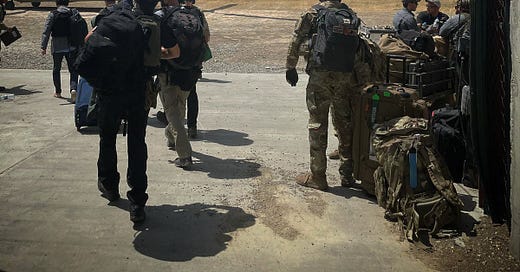A Frigid Cold Take on Afghanistan
The collapse of the Afghan government is the inevitable outcome of 20 years of misguided US policy.
I’m Michael A. Cohen, and this is Truth and Consequences: A no-holds-barred look at the absurdities, hypocrisies, and surreality of American politics. If someone sent you this email - or you are a fr…
Keep reading with a 7-day free trial
Subscribe to Truth and Consequences to keep reading this post and get 7 days of free access to the full post archives.



